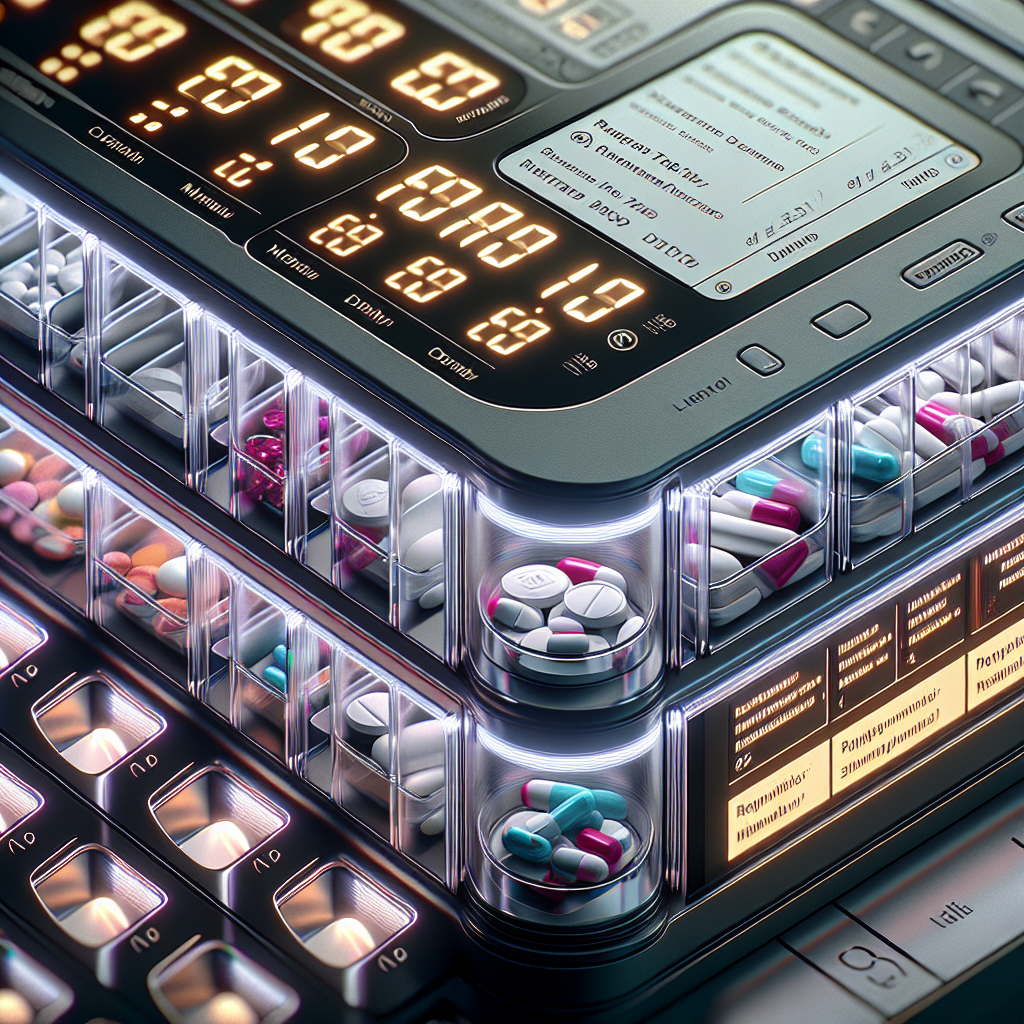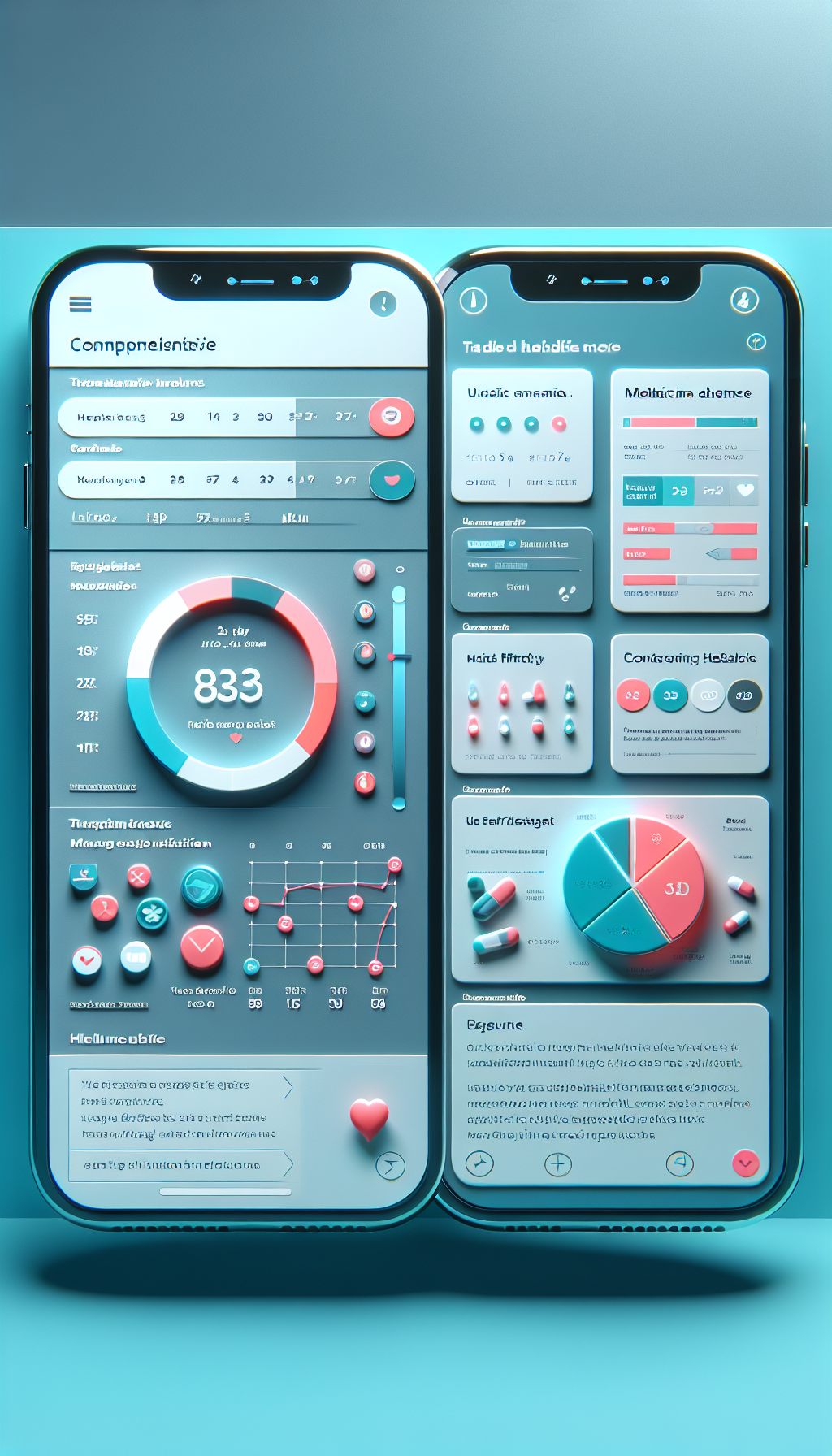Medication adherence is a critical component of effective healthcare, directly impacting patient outcomes and overall healthcare costs. With the advent of technology, innovative solutions are now available to assist patients and healthcare providers in ensuring that medications are taken as prescribed. This article delves into the importance of medication adherence, the challenges faced by patients, and how technology is revolutionizing the landscape of medication management.
The Significance of Medication Adherence
Adherence to medication regimens is essential for the treatment of chronic diseases, recovery from acute conditions, and the overall maintenance of health. Non-adherence can lead to suboptimal health outcomes, increased hospitalizations, and higher healthcare expenses. According to the World Health Organization, improving adherence to medication alone can have a greater impact on public health than any improvement in specific medical treatments.
The Challenges of Medication Non-Adherence
The reasons for non-adherence are multifaceted and can include forgetfulness, complex medication schedules, lack of understanding about the treatment, or the absence of symptoms. Elderly patients and those with chronic conditions are particularly vulnerable, as they often have multiple prescriptions, which increases the complexity of their medication regimens.
Technological Innovations in Medication Adherence
To combat these challenges, technology has stepped forward with solutions that range from simple reminders to complex systems that monitor and deliver medications. Some of the most prominent technologies include:
- Smart Pillboxes: These devices remind patients when it’s time to take their medication and can alert caregivers if a dose is missed.
- Mobile Apps: Apps can track medication schedules, provide reminders, and even connect patients with pharmacists or healthcare providers.
- Telemedicine: Virtual consultations can help manage medication adherence by allowing healthcare providers to engage with patients more frequently.
Integrating Medication Adherence in Health Management
One of the key aspects of improving medication adherence is the integration of these technologies into broader health management systems. For instance, adherence technologies can be linked with electronic health records (EHRs), allowing healthcare providers to have a real-time view of a patient’s medication-taking behaviors.
For more information on the importance of such integrations in managing health, particularly for chronic diseases, readers can explore Chronic Disease Management: Optimizing Medication and Supplement Use, which provides deeper insights.
The Role of Medication Adherence in Various Aspects of Health
Medication adherence technologies not only support general health but also play a significant role in managing specific health conditions:
Bone Health
For conditions like osteoporosis, adhering to medication is crucial for maintaining bone density and preventing fractures. Medication adherence technology ensures that bone health medications are taken consistently and correctly. For a comprehensive understanding of this topic, you can read more on Bone Health.
Cardiovascular Health
Patients with cardiovascular diseases require strict adherence to medication regimes to manage their conditions effectively. Non-adherence in such cases can lead to serious health repercussions, including heart attacks or strokes.
Brain Health
Medications for neurological conditions, such as Alzheimer’s or Parkinson’s disease, need to be taken regularly to manage symptoms and slow down disease progression. Understanding the Role of Inactive Ingredients in Medications offers additional information on how medication components can affect brain health.
Skin Health
Adherence to dermatological treatments is essential for managing conditions like psoriasis or eczema. Skipping doses can lead to flare-ups and prolonged recovery times.
Digestive Health
For gastrointestinal disorders, timely medication intake is necessary to control symptoms and maintain digestive health. Non-adherence can exacerbate conditions like inflammatory bowel disease or gastroesophageal reflux disease (GERD).
Sensory Health
Eye and ear health require precise medication adherence, especially in conditions such as glaucoma where missed doses can result in irreversible damage.
Fitness
For athletes or those engaged in regular exercise, medication adherence is important for managing pain, inflammation, and recovery. The Influence of Medication on Exercise Performance and Recovery delves deeper into this topic.
Medication & Supplements
Medication adherence is equally important when it comes to supplements, as they can play a complementary role in health management. The Impact of Nutraceuticals on Health and Wellness is a valuable resource for understanding this relationship.
External Resources Supporting Medication Adherence
To further underscore the importance of medication adherence and the role of technology, here are some niche resources:
- Medication Adherence in the Digital Age: This article discusses how digital tools are transforming patient adherence.
- Telemedicine and Medication Adherence: A study published in the Telemedicine Journal and e-Health exploring the impact of telemedicine on medication adherence.
- The Future of Smart Pill Technology: A research article from the journal Personalized Medicine that predicts how smart pill technology will evolve.
- Impact of Mobile Health on Patient Adherence: An article from the JMIR mHealth and uHealth journal analyzing the potential of mobile health applications to enhance medication adherence.
Conclusion
Technology has become an indispensable ally in the quest to improve medication adherence. From smart pillboxes to health apps and telemedicine, these tools are making it easier for patients to follow their medication schedules, thereby improving health outcomes and reducing healthcare costs. As we continue to embrace these innovations, it is crucial for healthcare providers, patients, and caregivers to work together in optimizing the use of these technologies for the betterment of patient care.



